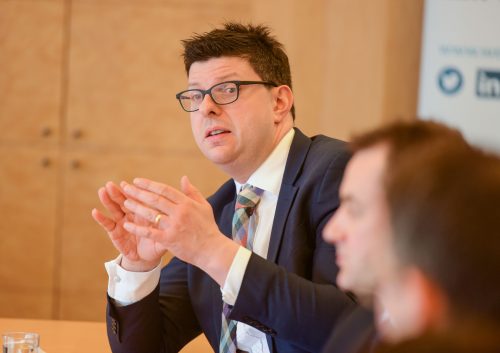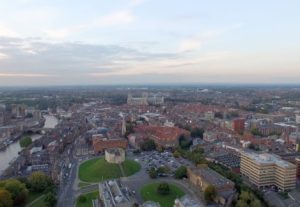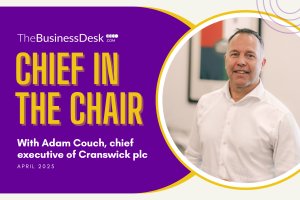Routes to prosperity in Yorkshire and the Humber

The Northern Powerhouse Partnership (NPP) was formed in 2016 to champion levelling up in the northern economic regions of England.
We spoke to NPP chief executive Henri Murison about the current challenges within Yorkshire and the Humber. He will host a series of quickfire presentations on different aspects of Yorkshire economies at the Business of Yorkshire Conference on 2 November.
“The transformation of the economy into a more productive one requires a degree of intervention from government and long-term investment from industry, otherwise it won’t happen.
“The incremental opportunities are there, but the transformational ones will come from significant changes in our economy and expanding the life sciences cluster in cities like Leeds and Sheffield, for example.”
He added, “It isn’t enough to say we have great businesses and they will just drive anyway. You need to have the underpinning infrastructure, whether it be transport, whether it be some of the innovation architecture around our universities and research institutions and organisations like the AMRC in South Yorkshire. All those need to be working at the top of their game to create opportunities.
“Whether it be in digital, in life sciences and healthcare, whether it be in energy around the zero transition, whether it be in manufacturing and materials and those prime capabilities, we have huge opportunities – but we need to unlock those things. They aren’t going to happen by accident. There are things we need to do to make that possible, otherwise those fast-growing, successful companies will go to other places in the world.”
In particular, he said, he wanted to see innovation-led investment zones deployed in Yorkshire, and greater devolution of investment funds to West and South Yorkshire’s combined authorities as had already happened in Manchester.
Devolution was critical, he added, as Yorkshire’s identity as a region was cultural rather than economic.
“The Humber, South Yorkshire, North Yorkshire and York, West Yorkshire – there are distinct economic opportunities in each of those geographies, and they’re not the same. They are different in each place. That’s why we’re working with the elected mayors in those regions as they come forward.
“Two of those have been elected and taken office, we’ve got a new mayor for North Yorkshire and York on the way, and another very likely to follow for the Humber on the north bank, for the whole of East Yorkshire.
“These individuals will give us the political leadership to match up to the business leadership, which does very much already exist on the ground.
“The economy of Yorkshire doesn’t really exist. Yorkshire is made up of separate economies, and they look to their neighbours in the rest of the north of England as much as they look to their nearest neighbours. Sheffield, in many ways, has more in common with Manchester than it does with Leeds.”
In North Yorkshire, he said, the priorities are opportunities in bio tech, in South Yorkshire adding health and research spinouts to its great manufacturing base. The Humber was focussed on getting carbon capture right, linking to Green Port 2, the next expansion of offshore wind and securing devolution. In West Yorkshire the priority was getting the investment zone to focus on the digital economy.
“You’ve got to give those different answers because otherwise you’re not getting the diversity of the economies that make up Yorkshire. It’s not one travel-to-work area.
“If there’s one unique proposition, it’s the M62. That’s a great asset for us – and the M18 and the M1 as well. That’s created an economy that really does exist – the M62 corridor is a real thing. The problem is that it depends on a road which is full. That’s why we need railways.”
Henri Murison will lead expert presentations on The Future that Yorkshire Wants at the Business of Yorkshire Conference at the Queens Hotel in Leeds on Thursday 2 November.








